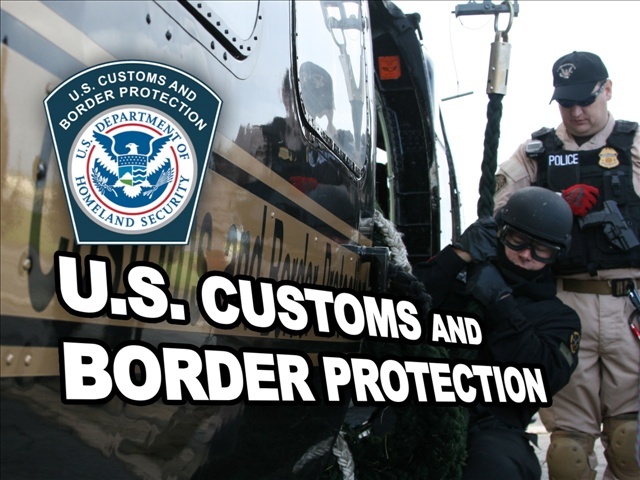Cheating death and fighting communism: that is how a fellow officer once described our job. It was meant to be funny, but as time went on it seemed all too true.
I spent more than ten years in law enforcement, all of it on the street in uniform patrol. I've been a patrol officer, instructor, sergeant and lieutenant.
Do not report crimes here. Nothing here should be considered legal advice. All opinions are my own.
Shot, no. Shot at, yes. While I have been injured, thankfully, all of my injuries have been relatively mild. Only one required any kind of "light duty," meaning that I had to work a desk for a few weeks until I was seen and cleared by a surgeon due to a knee injury.
I started shooting a long time before I went into police work. Shooting has always been fun and relaxing for me. I don't recall the first time I shot a gun, though it was likely one of my dad's .22 rifles. BB guns before that.
It is situational and individual dependent. The examples you gave are crimes, so "flashing a badge" would not save you. Often, the consequences are worse for an officer since he/she has a sworn oath to uphold the law, not break it. In some jurisdictions, that opens the officer to an additional criminal act of violating the oath of office. But, yes, off-duty officers sometimes get consideration that others do not. (Don't ask me to defend the ethics of such activity, because I cannot. It is what it is.)
Yes, I suppose I am biased in this. But, here is what experience (from my side of the badge) has shown me. Talking to the cops is generally a bad idea if you have engaged in illegal activity. However, being honest with the officers can help lessen the seriousness of the situation. I have genuinely worked to help out people who have committed crimes when there were mitigating circumstances and they were honest about what happened. For example, I worked a property crime recently where the accused called me because he wanted to do the right thing. Based on his honesty and willingness to turn himself in, I asked the jail to give him a lower bond (bail) and talked to the prosecutor about reducing or dropping the charges. I wouldn't have done any of that if he had not been up-front and honest. Yes, I have not arrested many people who talked to me. A perfect example is when I responded to an assault recently. The complainant advised the accused beat him down for no reason. There were marks on the complainant consistant with being attacked. A passerby advised the accused hit the complainant. So it sounds like the accused should go to jail. However, against your friend's advice, the accused talked to me and explained that the complainant had just stolen his bike. The accused advised he approached the complainant to get the bike back, and the complainant spun around to hit him. The accused said he then defended himself and was able to get back his bike. Eventually, I was able to confirm his story based on some of the particulars the accused gave me. The end result was the accused did not go to jail, but would have had he not talked to me. (FYI, the accused chose not to prosecute the complainant for theft. He felt justice had already be served.) Not talking to the cops is a personal choice. I talk to people all day; it is my job. How can I know what is going on in my patrol area if I don't talk to people, and they talk to me? Not talking to each other does nothing good - it just reinforces mistrust and barriers. I'd much rather work WITH the community than against it.
School Teacher
 How do you see parents failing in their children's education?
How do you see parents failing in their children's education?
Help Desk Technician
CBP Officer
 Why are so many customs officers huge jerks?
Why are so many customs officers huge jerks?
No. Politeness and honesty are your best friends in a traffic stop. Many officers already have an idea of what enforcement action they will take when they stop you. However, honesty and good manners are so refreshing that many officers will cut you some slack. Rudeness, on the other hand, can turn a warning into a court appearance. On a sparate note, the folks doing the soliciting for the PBA and other law enforcement organizations are often telemarketing companies who only give a small portion of the money they collect to the organization they claim to represent. If you want to donate to a law enforcement charity, consider Concerns of Police Survivors http://www.nationalcops.org/ They help the families of police officers killed in the line of duty.
Generally, cops are alpha personalities. Think about it: passive people don't seek out the most violent criminal elements in society and try to stop their anti-social behavior. Some officers are more "touchy-feely" than others, but at the end of the day, you have to be more "hunter" than "nurturer" to do the job. In fact, an FBI study illustrated the more easy-going an officer was, the more likely he would be killed. I think it is very rare for officers seeking power to actually get into police work. Most people craving power are the bully-types, who are ultimately cowards. Cowards don't make it in this profession. Instead, many officers got into the job because they had a fundamental desire to try to help their community. No doubt, there are some unqualified people who seek employment as an officer. Most of these get weeded out in the pre-employment testing. At virtually all law enforcement agencies in the US, candidates have an extensive background investigation plus must pass a polygraph and psychological examination. Even with these safeguards in place, a few idiots make it through. Most of these get weeded out in the training process, but a few do make it into the ranks. As they say, there are bad apples in every profession. Unfortunately, officers have a great deal of power and bad apples in police work can cause major problems.
Race is merely a descriptor to me when looking for someone. For example, if a white male just robbed a store, I will be looking specifically for white males. Beyond that, I don't care what you look like, where you are from, etc. All people are capable of good and evil. I'm looking for what people are doing, not what the look like. Every cop, no matter their own race, is accused of racism. Criminals don't like being arrested and can make all sorts of outlandish claims in an effort to "get back" at the cop who arrested them. It is annoying, but part of the world in which we work.
-OR-
 Login with Facebook
Login with Facebook (max 20 characters - letters, numbers, and underscores only. Note that your username is private, and you have the option to choose an alias when asking questions or hosting a Q&A.)
(A valid e-mail address is required. Your e-mail will not be shared with anyone.)
(min 5 characters)
By checking this box, you acknowledge that you have read and agree to Jobstr.com’s Terms and Privacy Policy.
-OR-
 Register with Facebook
Register with Facebook(Don't worry: you'll be able to choose an alias when asking questions or hosting a Q&A.)